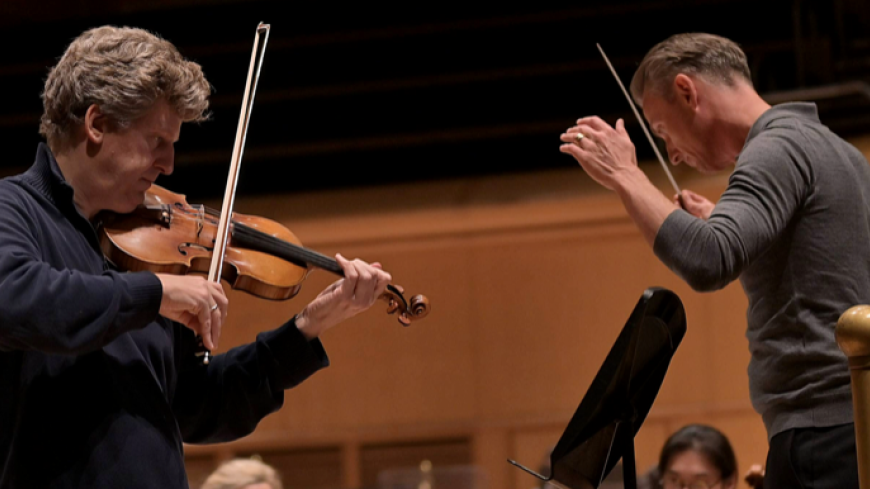
At the pre-concert talk, violin player Ursula Heidecker Allen lived up to her reputation of giving us a well prepared run down of the music we were about the hear, before she was joined for a few short minutes by the composer of the evening's concerto, the UK premiere. Classics at the Movies was the concert's theme.
With a brief friendly and clear introduction from the rear viola desk, conductor Alexander Shelley had us listen to Adagietto from Mahler's Fifth Symphony. We may well have heard it as the sound track in Death in Venice, Maestro, or when the moon is dislodged and comes towards earth in Moonfall.
It was a priviledge to have the celebrated violinist James Ehnes play the second Violin Concerto written with him in mind by one of great film score composers, James Newton Howard. It was he would had popped up in the closing minutes in the Upper Tier Gallery to tell us his difficulty writing a classical work without the contraints of a film score. In other words, a clean sheet. He was composing for James Ehnes and commissioned by the RSNO along with National Symphony Orchestra Washington. The first two movements, he told us, had not been too difficult to compose; the third took a lot more effort - in all almost two years. It was a spectacular performance and the sponsorship clearly well spent indeed.
After the interval came the short poignant Adagio for Strings by Samuel Barber familiar as a solemn film score and played following the death of a significant American or Americans - for instance, after the assasination of John F Kennedy or the destruction of New York's Twin Towers.
The dramatic opening of Richard Strauss's Also sprach Zarathustra used in A Space Odyssey, for instance, depicts the composer's interpretation of the very start of human consciousness in one of the earliest tone poems. Strauss used his understanding of German philosopher Friedrich Nietzsche's working of Persian prophet Zarathustra's rejection of religion in nine sections, including the twelve bells at midnight. Alexander Shelley had one hundred and two players in front of him, including Michael Bawtree on the Usher Hall's powerful organ, for a fast involved highlight of the concert of movie-related music.
Event: Friday 14th November 2025 at 7.30pm

